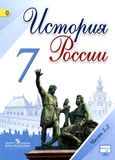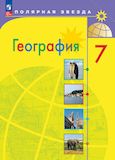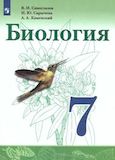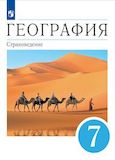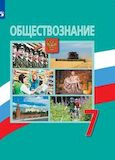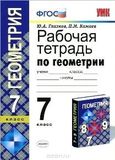Стр.83 Unit 6 Играя в игры ГДЗ Комарова Ларионова 7 класс
Грамматика
Сравнительная и превосходная степень прилагательных
сравнительная степень
односложные прилагательные small добавляем «er»: smaller
прилагательные оканчивающиеся на «е» wide добавляем «r»: wider
прилагательные оканчивающиеся на гласную + согласный big удваиваем последний согласный и добавляем «er»: bigger
прилагательные оканчивающиеся на «у» happy убрать «у» и добавить «ier»: happier
двусложные прилагательные exciting поставить «more» перед прилагательным: more exciting
прилагательные-исключения good better bad worse
превосходная степень
односложные прилагательные small добавляем «est»: smallest
прилагательные оканчивающиеся на «e» wide добавляем «st»: widest
прилагательные оканчивающиеся на гласную + согласный big удваиваем последний согласный и добавляем «est»: biggest
прилагательные оканчивающиеся на «у» happy убрать «у» и добавить «iest»: happiest
двусложные прилагательные exciting поставить «most» перед прилагательным: most exciting
прилагательные-исключения good the best bad the worst
Мы используем сравнительную степень прилагательных, чтобы сравнить две вещи.
Мы используем «than» после прилагательного в сравнительной степени. Draughts is easier than chess. (В шашки играть легче, чем в шахматы.)
Мы используем превосходную степень, чтобы сравнить три вещи и более.
Мы используем «the» до прилагательного в превосходной степени. This is the best game on my computer. (Это лучшая игра на моём компьютере.)
could/couldn’t
утвердительные предложения
I / You / He / She / It / We / They (Я / Ты / Он / Она / Оно / Мы / Они)
could dance. (мог/ла/ло/ли танцевать.)
отрицательные предложения
I / You / He / She / It / We / They (Я / Ты / Он / Она / Оно/ Мы / Они)
couldn’t play the bagpipes. (не мог/ла/ло/ли играть на волынках.)
вопросительные предложения
Could I / you / he / she / it / we / they (Я / Ты / Он / Она / Она / Мы / Они могли)
participate in the Games? (участвовать в играх?)
краткие ответы
Yes, I / you / he / she / it / we / they could. (Да, я / ты / он / она / оно / мы / они мог/ла/ло/ли.)
No, I / you / he / she / it / we / they couldn’t. (Нет, я / ты / он / она / оно / мы / они не мог/ла/ло/ли.)
Мы используем «could / couldn’t», чтобы говорить о способностях и возможностях в прошлом.
После «could и couldn’t» мы не ставим частицу «to».
Со всеми лицами глагол употребляется в одной и той же форме.
He could sing well. (Он умел хорошо петь.) - да He coulds sing well. - нет
should / shouldn’t
утвердительные предложения
I / You / He / She / It / We / They (Мне / Тебе / Ему / Ей / Ему / Нам / Им)
should see the Games. (следует посмотреть игры.)
отрицательные предложения
I / You / He / She / It / We / They (Мне / Тебе / Ему / Ей / Ему / Нам / Им)
shouldn’t carry that heavy stone. (не следует тащить этот тяжёлый камень.)
вопросительные предложения
Should I / you / he /she / it / we /they (Следует мне / тебе / ему / ей / нам / им)
take a camera? (взять камеру?)
Краткие ответы
Yes, I / you / he / she / it / we / they should. (Да, мне / тебе / ему / ей / ему / нам / им следует.)
No, I/you/he/she/it/we/ they shouldn’t. (Нет, мне / тебе / ему / ей / ему / нам / им не следует.)
Мы используем «should / shouldn’t», чтобы давать совет или рекомендации.
После «should и shouldn’t» мы не ставим частицу «to».
Со всеми лицами глагол употребляется в одной и той же форме.
Приведем выдержку из задания из учебника Комарова, Ларионова 7 класс, Русское слово:
Grammar
Comparative and superlative adjectives
short
adjectives small
adjectives
ending in e wide
adjectives
ending in
a vowel +
consonant
big
adjectives
ending in у
happy
long
adjectives
exciting
irregular adjectives good bad
comparative form
Add er: smaller
Add r: wider
Double the final consonant and add er: bigger
Delete the у and add ier: happier
Put more in front of the adjective: more exciting better worse
superlative form
Add est: smallest
Add st: widest
Double the final consonant and add est: biggest
Delete the у and add iest: happiest
Put most in front of the adjective: most exciting
the best the worst
We use comparative adjectives to compare two things.
We use than after comparative adjectives. Draughts is easier than chess.
We use superlative adjectives to compare three or more things.
We use the before superlative adjectives. This is the best game on my computer.
Cold/couldn’t
affirmative
I / You / He / She / It / We / They
could
dance.
Negative
I / You / He / She / It / We / They
play the bagpipes.
Questions
I / you / he / she / it / we / they
participate in
the Games?
Short answers
Yes, I / you / he / she / it / we / they could.
No, I / you / he / she / it / we / they couldn’t.
We use could / couldn’t to talk about ability and possibility in the past.
After could and couldn’t we don’t use to.
All persons are the same.
He could sing well. / He coulds sing well.
Should / shouldn’t
affirmative
I / You / He / It / We / They She
should
see the Games.
Negative
I / You / He /She It / We / They
shouldn’t carry that heavy stone.
Questions
Should I / you / he /she / it / we /they
take a camera?
Short answers
Yes, I / you / he / she / it / we / they should.
No, I/you/he/she/it/we/ they shouldn’t.
We use should / shouldn’t to give advice or recommendations.
After should and shouldn’t we don’t use to.
All persons are the same.
Популярные решебники 7 класс Все решебники
*размещая тексты в комментариях ниже, вы автоматически соглашаетесь с пользовательским соглашением
